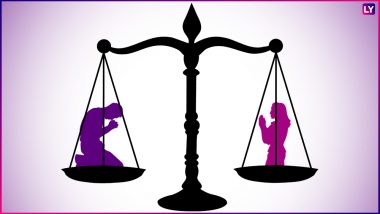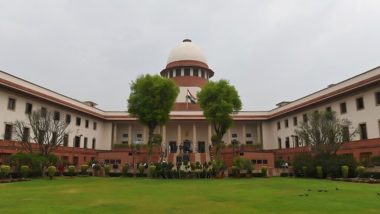Menstruation is normal; women on their periods are not "impure" and as the Supreme Court said today, these biological factors cannot be given legitimacy when it comes to rights of a human being. The message today was made loud and clear by the apex court when it opened the doors of the Sabarimala Temple for women of all age groups. We've had years of "don't enter the kitchen", "don't step inside the temple room in the home" and also "hide those sanitary napkins." It's high time we put an end to this.
It's now coming from the supreme authority of the law in India that women and men are equal. A menstruating woman is not an impure or a sick woman. She has nothing to hide, nothing to be ashamed of when she is bleeding down there. Highlights of Sabarimala Verdict.
In fact, if a woman is on her periods, it means she has a healthy reproductive system. The menstrual blood, that the society considers impure, has the capability of nourishing another human life inside a woman's womb.
We don't have to whisper around asking for a sanitary napkin at work, we don't have to buy that pack of napkins in a black bag so people don't see it. It's no disease, and it's no matter of shame. Sabarimala Verdict by Supreme Court: As it happened.
For years now, women have been made to feel ashamed of something that is a part of their bodies and comes with them from the moment they are born. In a country where the female gender itself is downplayed, suppressing her on the basis of menstruation makes it worse. For how long will women continue to have to fight it out for equality? The court today said that the law and society are tasked to act as levellers. Yes, it's upon us and we have to bring the change.
Right to Pray Across Faiths
Sabarimala was a single case. The Supreme Court in its judgment made some very important observations that must set a precedent across faiths. "To treat women as children of lesser God is to blink at Constitutional morality. Physiological features cannot be a ground for denial of a right," Justice Chandrachud said. CJI Dipak Misra in his verdict also noted how women have been worshipped as goddesses in the country and that they cannot be considered weaker and lesser.
These remarkable observations make way for many other temples and even mosques to get rid of norms that are a result of patriarchy. And, who made these norms? Human beings like us? Men at the helm of affairs on those religious bodies? The verses of the Gods across religions say nothing about a woman's entry into a temple, a mosque, a gurudwara or a church. The holy books don't say so, the Constitution vouches for equality, the Supreme Court has ruled equality. Who are these people, then, to tell us we can't enter into a temple or touch an idol to seek blessings?
Our right to pray is ours as much as it's yours. Stop telling us when to pray, how to pray, why not to pray citing our gender. My faith in God and the Lord's blessing on me won't depend on my periods.
(The above story first appeared on LatestLY on Sep 28, 2018 01:04 PM IST. For more news and updates on politics, world, sports, entertainment and lifestyle, log on to our website latestly.com).













 Quickly
Quickly




















